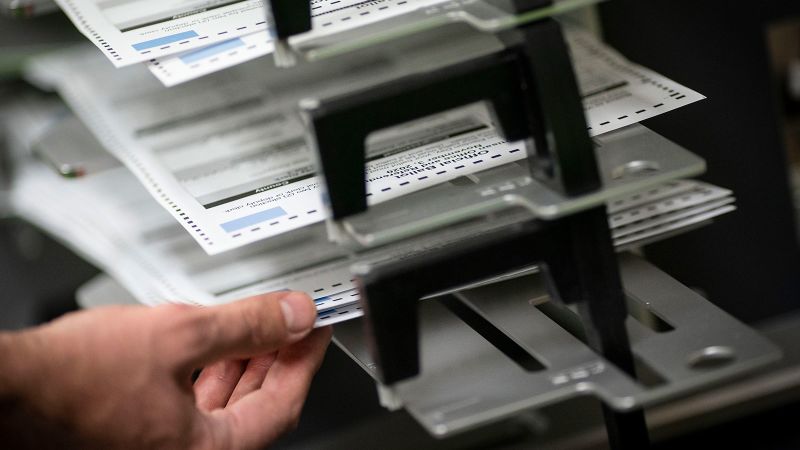Wisconsin voters have approved two election-related amendments to the state constitution in a move that is seen as a win for Republican lawmakers who have been seeking to change voting rules in the state ahead of the November presidential election. One of the amendments bans the use of private money in election administration, with critics referring to the funds as “Zuckerbucks” due to a large donation made by Facebook founder Mark Zuckerberg and his wife to a nonprofit that helped with the 2020 election during the COVID-19 pandemic. This victory for conservative activists comes after claims that the funds influenced the election outcome by increasing Democratic turnout in major cities in the state.
The $350 million donation included $10 million sent to Wisconsin jurisdictions, with the grant administrators emphasizing that the money was distributed to all communities that requested it without partisanship playing a role in the decision-making process. However, opponents of the private funding argue that it unfairly shaped the 2020 election results, which saw Wisconsin shift from supporting Donald Trump in 2016 to electing Joe Biden in 2020 by a margin of fewer than 21,000 votes. Since Trump’s loss in 2020, he and his supporters have repeatedly made baseless claims of election fraud in Wisconsin and other states.
Wisconsin voters have also approved a separate constitutional amendment that would limit election administration to officials designated by state law, aiming to prevent outside consultants from participating in the process. Proponents of the measure argue that it is necessary to safeguard the integrity of the election process, while opponents raise concerns about potential unintended consequences, such as restricting local clerks from accepting donations or using privately owned buildings as polling places. The amendments do not guarantee increased government funding to support elections once private donations are banned.
These changes in Wisconsin reflect a broader trend across the country, with more than two dozen states implementing restrictions on private donations for elections following the 2020 contest. The National Conference of State Legislatures has reported on the increased regulation of private funding for elections, highlighting the concerns raised by Republican lawmakers and the push to alter election rules in battleground states. Efforts to pass similar legislation in Wisconsin through the state legislature were vetoed by Democratic Governor Tony Evers, who has blocked election changes proposed by the Republican-controlled legislature.
The passage of these election-related amendments in Wisconsin underscores the ongoing debate over voting rules and election administration in states across the country. As the battleground state prepares for the upcoming presidential election, the changes in Wisconsin are expected to impact the voting process and limit the role of private funding in elections. The amendments have sparked criticism and praise from different groups, with supporters touting the measures as necessary to ensure fair elections and opponents raising concerns about potential consequences and the lack of government funding to support election administration.


